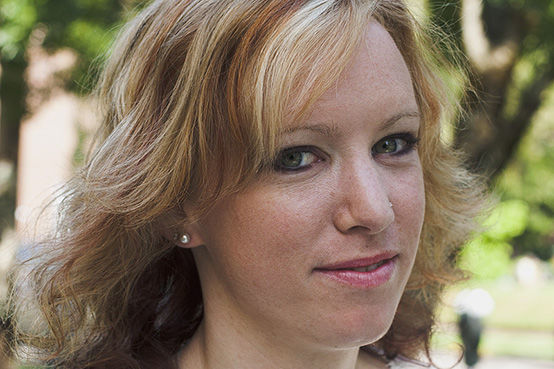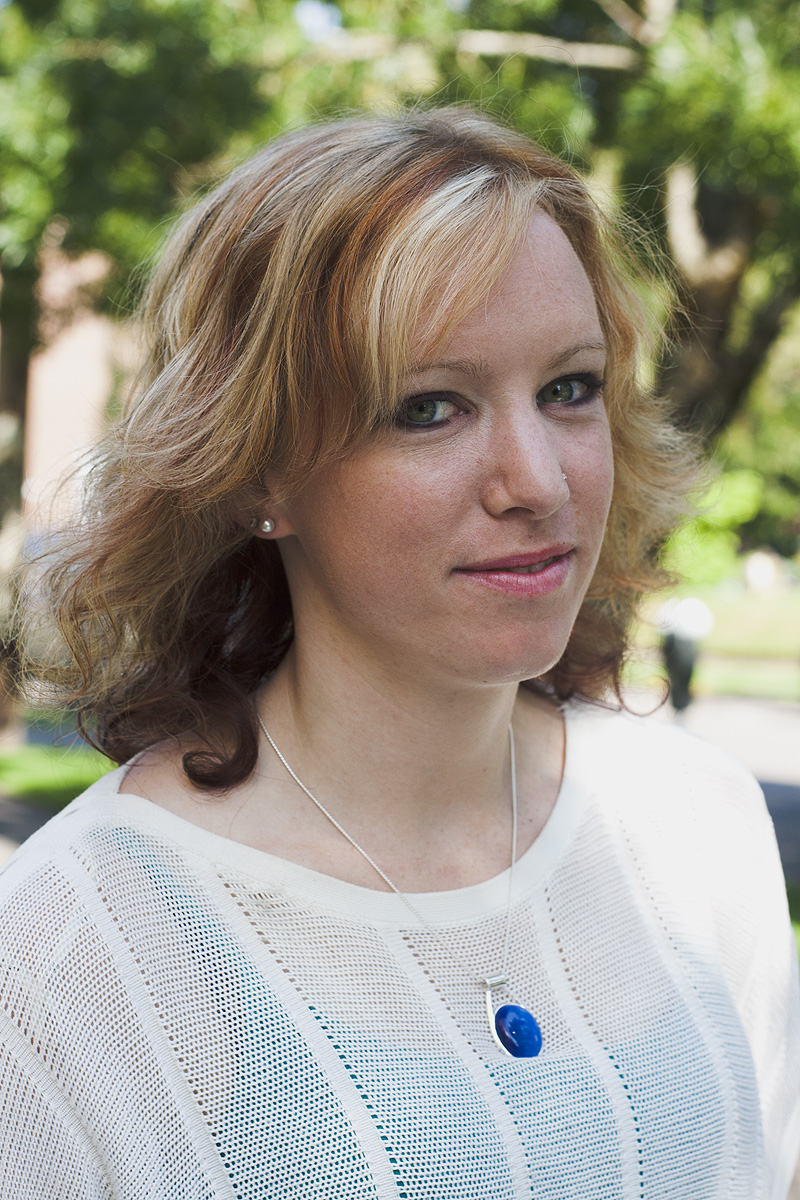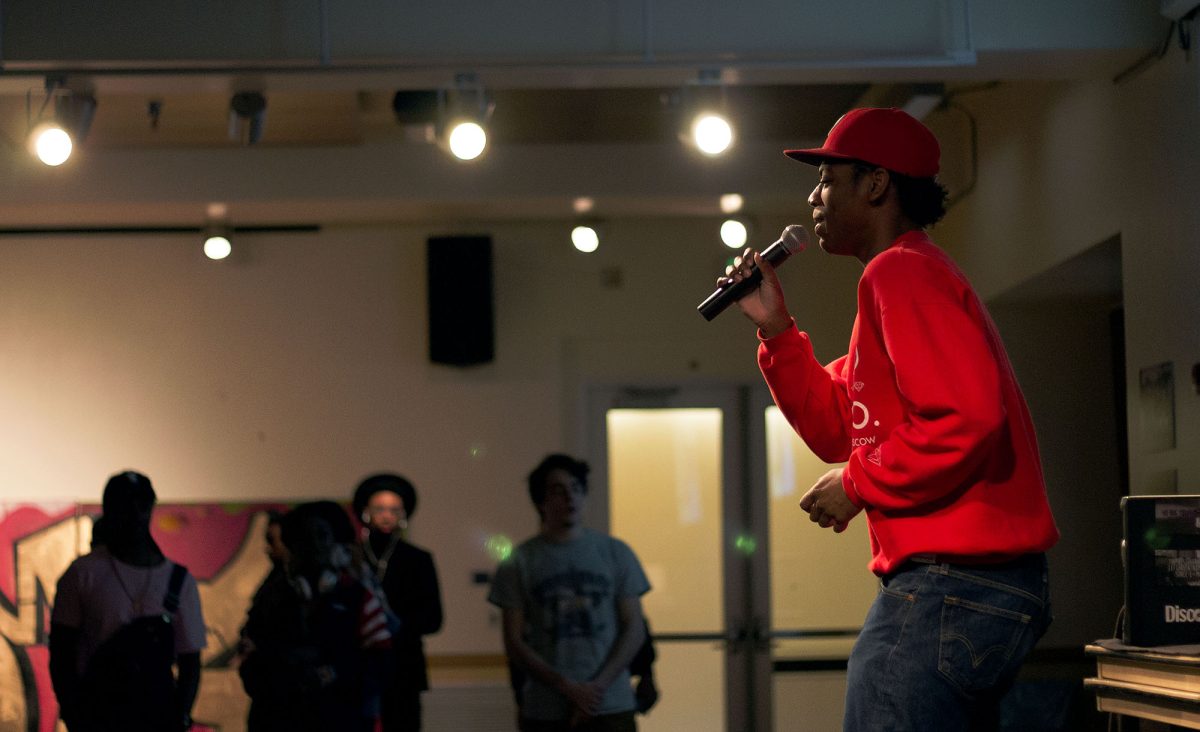Story by Tiana Bouma
“Every queen needs her king.” Or maybe a girl just needs her queen? The thought flitted across my mind as I read the words printed on the formal dance shirts for 2010. The design was cute, the color to die for, and the idea made most girls squeal with glee, but that word “king” was impossible for me to ignore.
There was no way to get around it. The design had been approved and the orders had to be placed within days. I was faced with a huge dilemma: as someone who was attracted to women I couldn’t buy a shirt that so blatantly cut out part of my sexuality. It would be the first sorority shirt I hadn’t bought since joining as a founding member the year before—all because of one little word.
I joined my sisterhood in winter 2009 because I had found a sorority as unique as I am. Yet, I still had a questioning little voice in the back of my mind—Would I be accepted into fraternity and sorority life? Would I find that Greek life mirrored society’s biases? Joining a sorority was a spontaneous leap (with a helpful push from my little sister) into the unknown, but the idea of building our chapter from the ground up was both exciting and terrifying. We were creating the traditions that sisters would be following 100 years from now. But were we leaving the right legacy?
Two years ago at bid day for my still unformed chapter, I stood in a hallway with over 100 girls that I had never met, listening to the chatter and laughter of fellow college women. I saw other nervous, frantic eyes zooming from one unknown face to another. My mantra for the day: just don’t use the title “girlfriend.” Everyone has seen the fraternity and sorority stereotypes on television or in movies, and how often do you hear of openly gay, lesbian, or transgender people in Greek life? I had yet to see such a combination.
A few hours later, I walked away from bid day excited about my new sorority but with a secret that made my shoulders heavy. I had bonded with girls but I was worried that if they knew the real me, the fog of stereotypes would cloud their vision permanently.
As it was, being a founding class member was a scary enough experience on its own. The group of girls had promised each other that we would create a new sorority, one that didn’t follow norms; we wanted to celebrate the differences in our sisters.
By the time our first week as a house rolled around, I felt comfortable enough to quietly come out to a few of my sisters. The relationship question was a popular one and it offered me an easy escape, sometimes even an icebreaker. When asked if I had a boyfriend, it grew easier over time to reply, “No, actually I have a girlfriend,” without grimacing in fear that they would be repulsed.
I realized that a lot of my initial fear had been based on stereotypes of sorority girls and that my assumptions had scared me into suppressing my sexual orientation as part of my identity. As I talked more openly with my sisters, I saw that over the previous few months they had gone from being strangers to women I was proud to call friends. Many of them no longer hesitated before asking how my girlfriend was; their acceptance had become natural.
I would love to say that every girl welcomed me with open arms, but my encounters with societal negativity have taught me that sometimes stereotypes are stronger then friendships. Acceptance is not something I can force on the girls in my house or on others who know me. Daily experiences make this clear. One of the most popular and most narrow-minded lines I’ve come across is, “You just haven’t met the right guy yet,” wink and smile included. It’s also not uncommon for college-aged men to ask me to make-out with their female dates since, as the explanation so often goes, “You like girls, so you must like my girl too.”
Women are beautiful, but I dislike when people assume that I am drooling over all of my sisters and female friends just because I date women. Conversely, I feel caged by the assumption that I will never look at a man again simply because I love women. As a wise and beautiful dear friend of mine says, “I fall for the soul, not the gender.” I refuse to label myself—or worse, let them label me. There is nothing wrong with just me, sans a straight or gay title.
I am dismayed that society cannot look past sexual orientation to see that the person in front of them is as unique as any other human being. We hardly have tails or breathe fire or spit corrosive acid, and we certainly won’t turn young teens into sinners by informing them of the reality of same-sex couples, marriage, and sex.
I knew that pledging a sorority would change my life and my sisters will forever hold a special place in my heart. What I did not know was that I would encounter the same stereotypes in some of these women even after we had promised eternal friendship and forged an unbreakable sisterhood. This knowledge saddens me. Although particular sisters have said nothing to me directly, I have been told by close sisters that some girls are uncomfortable with the idea of me living in the sorority house or bringing my girlfriend to our social events. And that awkward pause when I use the term “girlfriend” or “lesbians” around some is always hard to ignore—try as I may.
I hold no grudge or hatred in my heart toward these women; I can only hope that in the near future our generation will see more changes and more progress in societal belief, and that my sisters, and society, will no longer define me by my sexual orientation but by the soul and personality that I am.
I am here to make a change and before I graduate I hope to stand up in front of my entire house and say, “Thank you for accepting me for everything I am, because we are sisters, and when the prejudices are stripped away, you have seen that we are the same, and you love me just as much.”
Categories:
Just Another Sister?
September 26, 2011

Changing the status quo along Greek Row.
Just Another Sister?
0
Donate to Ethos
Your donation will support the student journalists of University of Oregon - Ethos. Your contribution will allow us to purchase equipment and cover our annual website hosting costs.
More to Discover














